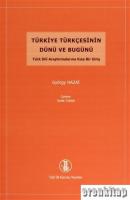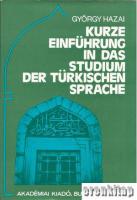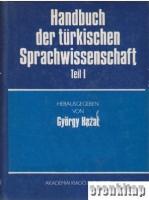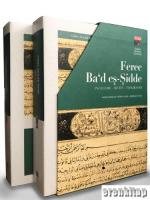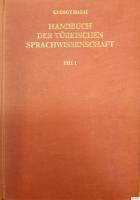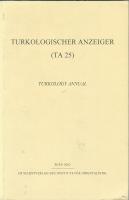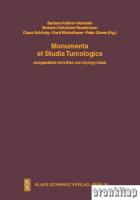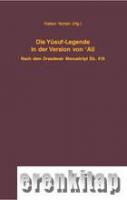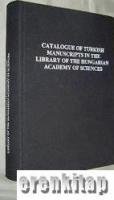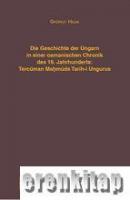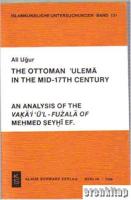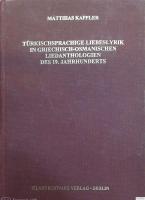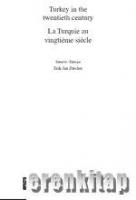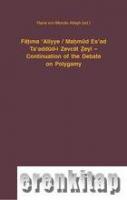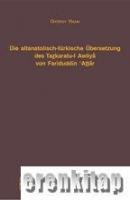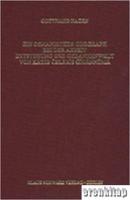Ferec ba'd es - sidde. 'Freud nach Leid' ( Ein frühosmanisches Geschichtenbuch ) 1. Band : Text,2. Band : Faksimile
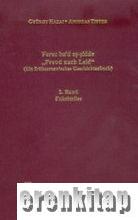
A collection of stories that is certainly a splendour of ancient Anatolian Turkish literature and one of the most important examples of prose in early Ottoman. Volume 1: Transcription of the complete text of the Budapest manuscript, the oldest version of this work, compiled in the year 855/1451 at the court of the Ottomans in Edirne. Volume 2: Facsimiles. Das Ferec ba'd es-sidde ist eines der bedeutendsten Prosawerke des Frühosmanischen. Ein solches in sich geschlossenes und umfangreiches Sprachdenkmal bietet sich für eine sprach- und literaturhistorische Untersuchung an. Die zur Edition vorliegende Handschrift (Ms. Budapest) ist die älteste heute bekannte Version dieses Werkes. Sie entstand im Jahre 855/1451 am Hofe der Osmanen in Edirne. Band 1 enthält nach dem Vorwort von György Hazai und der Einleitung von Andreas Tietze die Transkription des Textes der Budapester Handschrift. Zur notwendigen Ergänzung der Edition sowie zum philologischen Apparat wurden drei Istanbuler Handschriften (Fatih 3718, Hamidiye 1173 und Lâleli 1698) herangezogen. Band 2 versammelt die Faksimiles der Budapester Handschrift des Ferec ba'd es-sidde, die in der Bibliothek der Ungarischen Akademie der Wissenschaften aufbewahrt wird (Török F. 71). Die wenigen Lücken wurden durch die Istanbuler Handschrift (Lâleli 1698) ergänzt.
Book-review: »The book is the edition of one of the earliest products of the Old Anatolian Turkish literature in prose. […] This important source of Turkish language is now avaliable for the international scholarship. There is no doubt that this edition will generate further research on this work, being a very early monument of the Old Anatolian Turkish culture.« [Ismail Parlatir, in: Orientalistische Literaturzeitung OLZ 104 (2009) 1, pp 84]
- Açıklama
A collection of stories that is certainly a splendour of ancient Anatolian Turkish literature and one of the most important examples of prose in early Ottoman. Volume 1: Transcription of the complete text of the Budapest manuscript, the oldest version of this work, compiled in the year 855/1451 at the court of the Ottomans in Edirne. Volume 2: Facsimiles. Das Ferec ba'd es-sidde ist eines der bedeutendsten Prosawerke des Frühosmanischen. Ein solches in sich geschlossenes und umfangreiches Sprachdenkmal bietet sich für eine sprach- und literaturhistorische Untersuchung an. Die zur Edition vorliegende Handschrift (Ms. Budapest) ist die älteste heute bekannte Version dieses Werkes. Sie entstand im Jahre 855/1451 am Hofe der Osmanen in Edirne. Band 1 enthält nach dem Vorwort von György Hazai und der Einleitung von Andreas Tietze die Transkription des Textes der Budapester Handschrift. Zur notwendigen Ergänzung der Edition sowie zum philologischen Apparat wurden drei Istanbuler Handschriften (Fatih 3718, Hamidiye 1173 und Lâleli 1698) herangezogen. Band 2 versammelt die Faksimiles der Budapester Handschrift des Ferec ba'd es-sidde, die in der Bibliothek der Ungarischen Akademie der Wissenschaften aufbewahrt wird (Török F. 71). Die wenigen Lücken wurden durch die Istanbuler Handschrift (Lâleli 1698) ergänzt.
Book-review: »The book is the edition of one of the earliest products of the Old Anatolian Turkish literature in prose. […] This important source of Turkish language is now avaliable for the international scholarship. There is no doubt that this edition will generate further research on this work, being a very early monument of the Old Anatolian Turkish culture.« [Ismail Parlatir, in: Orientalistische Literaturzeitung OLZ 104 (2009) 1, pp 84]Stok Kodu:9783879973255Boyut:16,00x24,00 cm. cm.Sayfa Sayısı:650 S.+ 59Basım Yeri:BerlinBaskı:1Basım Tarihi:2006Kapak Türü:CiltliKağıt Türü:1. HamurDili:Almanca - Türkçe
- Yorumlar
- Yorum yazBu kitabı henüz kimse eleştirmemiş.
- Yeni Gelenler




